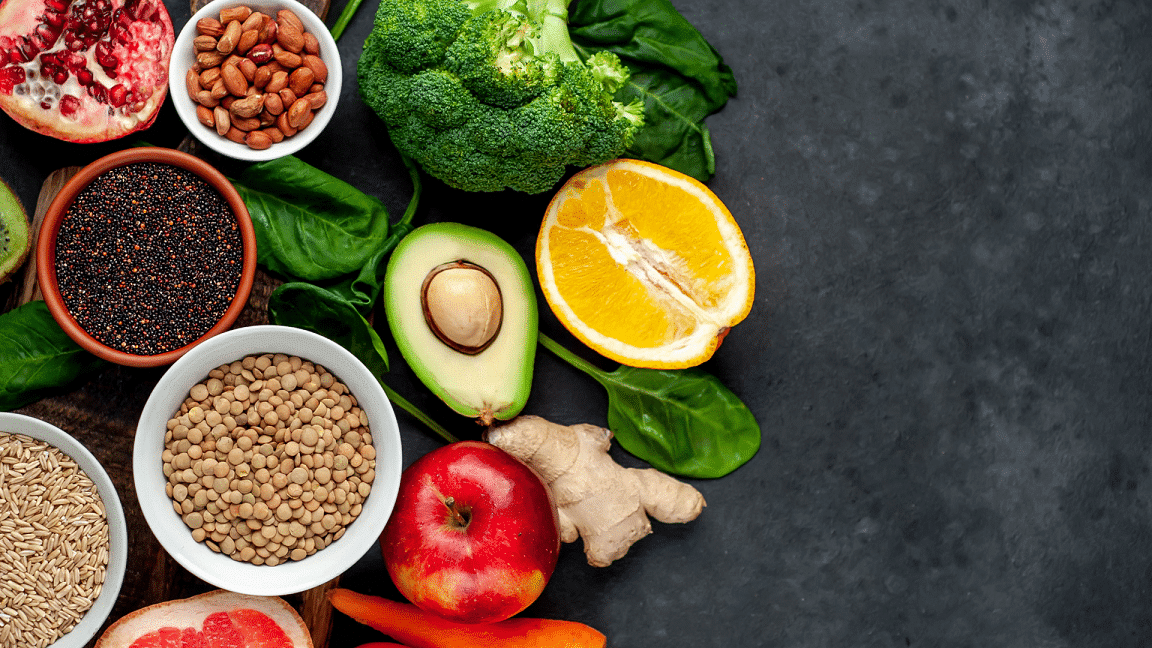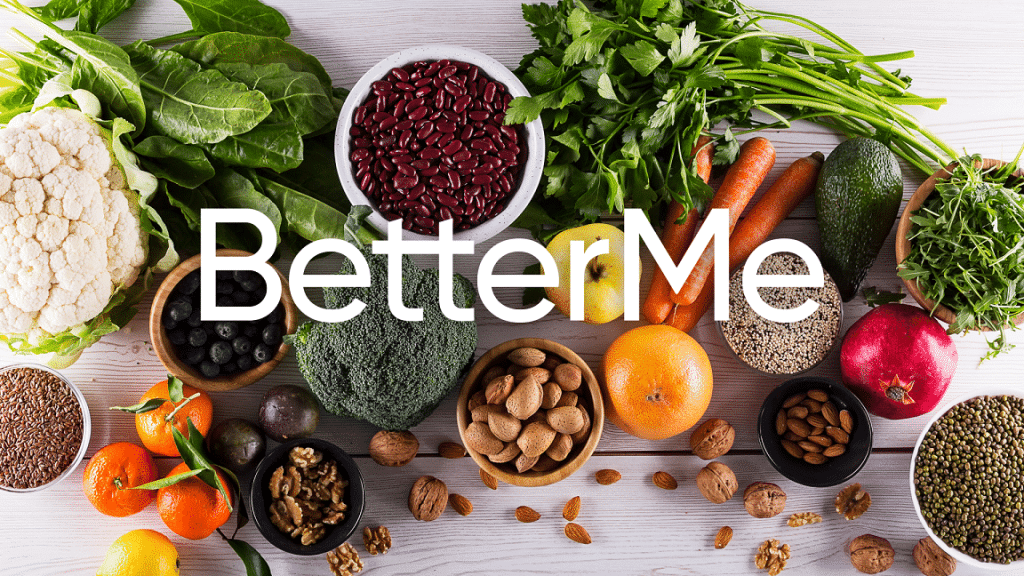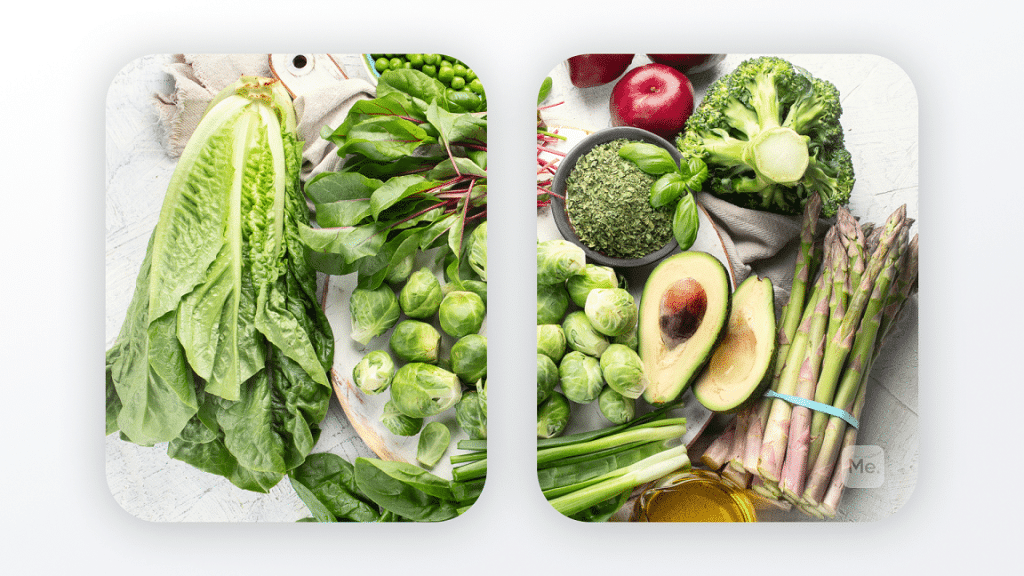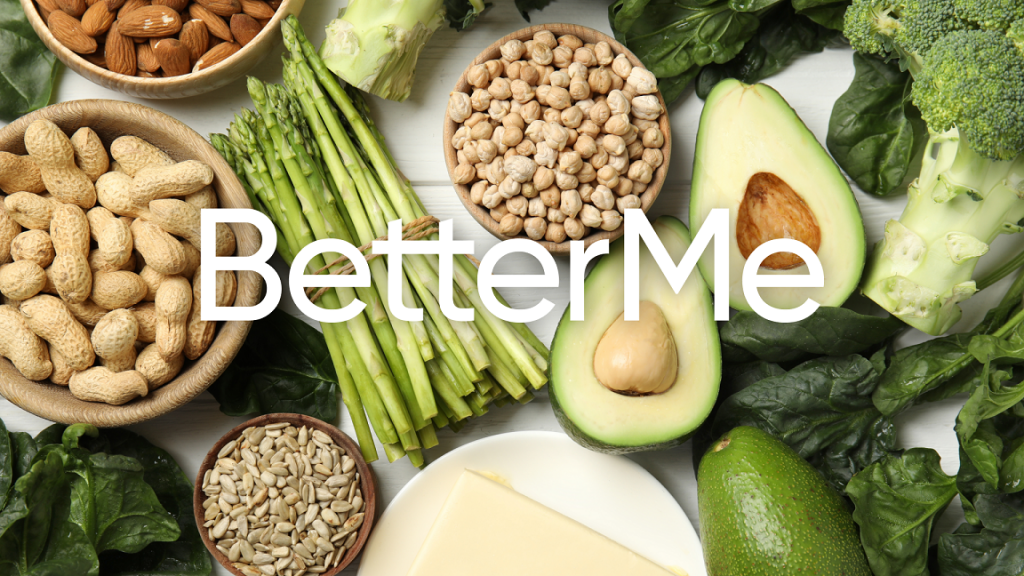For your body to function properly, you need nutrients, and these are vitamins and minerals. You can buy them at any pharmacy in the form of tablets, powders, fortified drinks, and so on. But is it the only way to get them? The answer is: “Certainly not!”. There are also foods rich in vitamins and minerals. If you want to receive these nutrients naturally, pay attention to the information below.
What Are Vitamins?
Vitamins are substances that are necessary for people to grow, develop, and live. Our body can synthesize some vitamins, but most of them come from food. There are certain times in life when we need even more vitamins than usual: during intensive growth, pregnancy, breastfeeding, heavy physical work, intense physical exertion, in old age.
Vitamins and minerals do not have nutritional value in the form of energy, but they perform some of the most important functions as they regulate metabolic processes, catalyze biochemical reactions, and help in the assimilation of many mineral components. With vitamin deficiencies, various metabolic disorders develop, which lead to malfunctions and the formation of pathologies (disease or malfunction). Deficiency occurs when there is either inadequate intake of the vitamin or problems with absorption and assimilation.
Read More: Do Vitamins Break A Fast: Exploring The Impact Of Supplements On Fasting
Types Of Vitamins And Their Solubility
Vitamins are classified by their solubility, i.e., the ability of one substance to dissolve in another. So, one category of vitamins is soluble in water, while the second is fat-soluble. It is important to note that the second category has some similarities with oils and cannot be dissolved in water.
Fat-Soluble Vitamins
Unlike water-soluble vitamins, fat-soluble micronutrients are much better absorbed by the body, especially when consumed simultaneously with food that contains fat. They can also be stored by the body for later use, just like fat. Most importantly, you can find these vitamins, which include A, D, E and K, in the diet of almost every person. Learn how these substances can benefit your body.
Vitamin A:
- can significantly help the health of your skin and eyes. Its deficiency is the world’s leading cause of preventable blindness in children and increases the risk of disease and death. It is a serious problem in more than half of all countries, though it mainly affects poorer regions (2).
Vitamin D:
- Regulates the amount of calcium and phosphate in the body. Subsequently, the lack of vitamin D can lead to rickets in children and osteomalacia in adults, which is characterized by weakness, aches, and pains because the bones don’t have enough calcium (4).
Vitamin E:
- It is an antioxidant which prevents oxidation and the subsequent damage it can cause, including protecting against free radicals. In addition, vitamin E is involved in maintaining healthy skin and regulating and strengthening the immune response (5).
Vitamin K:
- Is involved in blood clotting, which means it helps wounds heal properly. Moreover, it works with vitamin D to regulate calcium in the body, so it plays a role in bone health. The body only needs a little vitamin K and some is produced by our gut bacteria, so deficiencies are rare, but a healthy balanced diet is necessary to ensure you have enough.
Water-Soluble Vitamins
The next group of vitamins is defined as water-soluble. In short: they do not accumulate in the body and are eliminated from it after a few days, therefore they must be consumed daily.
Vitamin C (Ascorbic Acid):
- Is important for the growth and restoration of cells in tissues, gums, blood vessels, bones, and teeth. It promotes the absorption of iron by the body so it can recover faster. Vitamin C is useful in protecting against infections. This valuable element stimulates the launch of immune processes. Vitamin C is also used in skincare to help smooth wrinkles and increase tone. What is more, it can enhance the absorption of iron from plant sources when the two are eaten together.
Vitamin B1 (Thiamin):
- Is vital for energy metabolism, particularly carbohydrate metabolism (6). Moreover, it is key for muscle contractions and the conduction of nerve signals. Thiamin deficiency causes beriberi disease and can cause weakness, fatigue, psychosis, and nerve damage. Whilst it is not very common, alcoholics are most at risk of beriberi (7).
Vitamin B2 (Riboflavin):
- Is also involved in energy metabolism. It keeps the skin, eyes, and nervous system healthy. Deficiency of riboflavin can cause several symptoms such as a sore throat, cheilosis (lesions on the lips), normocytic and normochromic anemia, and angular stomatitis (lesions on the corners of the mouth). Without riboflavin, several other vitamins, such as folate, cannot be metabolized, so riboflavin deficiency often occurs with other vitamin deficiencies.
Vitamin B3 (Niacin):
- Helps the body to release energy from the food sources you eat. It ensures a proper functioning nervous system and liver. But, if taken for too long at high doses, supplements can cause liver damage.
Vitamin B6 (Pyridoxine):
- Is a group of six compounds. It has a wide variety of functions and is particularly involved in protein metabolism. Vitamin B6 is a key component in the formation of hemoglobin (the substance in red blood cells that carries oxygen around the body). But be aware that long-term high doses can be toxic and may result in nerve damage. This can become irreversible if this occurs for more than a few months.
Vitamin B9 (Folate, Or Folic Acid):
- Works with vitamin B12 to form healthy red blood cells (1). Folate also helps to reduce the risk of central neural tube defects, such as spina bifida in unborn babies. Therefore maintaining a healthy amount is important during pregnancy. Because of its role in red blood cell formation, a deficiency can lead to folate deficiency anemia, which causes fatigue, diarrhea, loss of appetite, heart palpitations, and behavioral disorders.
Vitamin B12 (Cobalamin):
- The main function of vitamin B12 is normal hematopoiesis. Its deficiency is a cause of megaloblastic anemia and neurological disorders. However, Vitamin B12 cannot be synthesized in the body.
Vitamin B5 (Pantothenic Acid):
- Like all the B vitamins, is involved in releasing energy from food, particularly fatty acids. The lack of pantothenic acid can cause fatigue, chronic stress, and depression, although it is difficult to determine the symptoms because it is not common and often occurs with other deficiencies (3).
What Foods Are High In Vitamins?
As you may have noticed, the amount of benefits of having vitamins in our body is tremendous. However, vitamins don’t always come in the form of tablets or capsules. Therefore you can easily find all the necessary vitamins in the foods you eat. Here you have some examples of the vital nutrients you need and sources where to find them:
Vitamin A:
- butter, egg yolk, carrots and other orange fruits and vegetables.
Read More: 14 Day Boiled Egg Diet: Will It Yield Any Long-Term Results?
Vitamin D:
- fish, egg yolk and fortified milk products.
Vitamin E:
- vegetable oils, green vegetables, and seeds of grains (wheat, oats, and barley).
Vitamin K:
- meat, fish, vegetables (tomatoes, green peas, spinach), and walnuts.
Vitamin B1:
- dairy, meat, flour products, sunflower seeds, nuts, beans, brown bread.
Vitamin B2:
- liver, kidneys, yeast, oatmeal.
Vitamin B3:
- eggs, dairy products, tuna, mushrooms.
Vitamin B5
- eggs, dairy products, trout, peanuts, walnuts, hazelnuts, carrots, and onions.
Vitamin B6:
- wheat flour, liver, kidneys, yeast, sweet pepper, bananas, garlic, onions, tomatoes, and carrots.
Vitamin B12:
- meat, fish, kidneys, liver, seaweed, milk, nutritional yeast.
Vitamin C:
- fresh fruits (most citrus fruits) and vegetables (bell peppers, cabbage, tomatoes, spinach, parsley, dill).
Vitamin P:
- tomatoes, currants, rose hips, almonds, tea.
Frequently Asked Questions About Vitamins
Do Vitamins Provide Energy?
Vitamins and minerals do not provide energy (calories), but they help to release energy from carbohydrates, protein, and fat.
Can You Overdose Taking Vitamins?
Getting an overload of vitamins can hurt you. For example, too much vitamin C or zinc could cause nausea, diarrhea, and stomach cramps.
Conclusion
Vegetables, fruits, and juices should be part of our diet. These are not only useful recommendations but vital principles you must follow daily. Besides, vitamins from natural products are absorbed much better than pharmacological preparations. This is the most reliable and safe way of vitamin therapy, i.e., to use environmentally friendly natural products rich in vitamins and minerals.
DISCLAIMER:
This article is intended for general informational purposes only and does not address individual circumstances. It is not a substitute for professional advice or help and should not be relied on to make decisions of any kind. Therefore any action you take upon the information presented in this article is strictly at your own risk and responsibility!
SOURCES:
- Folic acid in diet (n.d., medlineplus.gov)
- Micronutrient deficiencies (n.d., who.int)
- Pantothenic acid deficiency induced in human subjects (1955, ncbi.nlm.nih.gov)
- Prevalence of Vitamin D Deficiency and Associated Risk Factors in the US Population (2018, ncbi.nlm.nih.gov)
- The Role of Vitamin E in Human Health and Some Diseases (2014, ncbi.nlm.nih.gov)
- Thiamin Function, Metabolism, Uptake, and Transport (2014, pubs.acs.org)
- Vitamin B1 Thiamine Deficiency (Beriberi) (2019, ncbi.nlm.nih.gov)











